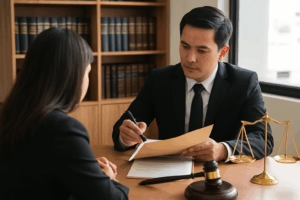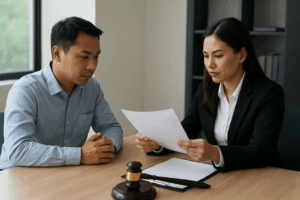Operating a business in Thailand can be a rewarding venture, but it also comes with inherent risks. From liability concerns to potential property damage and business interruptions, safeguarding your investment with the right insurance coverage is essential for long-term success. In this comprehensive guide, we’ll explore the intricacies of business insurance in Thailand, empowering foreign entrepreneurs with the knowledge they need to protect their ventures effectively while ensuring compliance with local regulations, with insights from a leading law firm in Bangkok.
Section 1: Understanding Business Insurance
Business insurance encompasses a wide range of coverage options designed to mitigate risks associated with operating a business. In Thailand, foreign entrepreneurs may need various types of business insurance to address specific risks, including:
1. Liability Insurance: Protects against claims of bodily injury or property damage caused by the business operations, products, or services.
2. Property Insurance: Covers damage or loss to physical assets such as buildings, equipment, inventory, and furnishings due to fire, theft, vandalism, or natural disasters.
3. Business Interruption Insurance: Provides financial protection against income loss and additional expenses incurred due to unexpected disruptions to business operations, such as fire, flood, or other catastrophic events.
4. Professional Indemnity Insurance: Offers protection against claims of negligence, errors, or omissions in the provision of professional services.
Understanding the specific risks faced by your business and selecting appropriate insurance coverage tailored to your industry and operations is essential for comprehensive protection.
Section 2: Legal Requirements and Regulations
In Thailand, there are legal requirements and regulations governing business insurance that foreign entrepreneurs must adhere to. While certain types of business insurance may not be mandatory, others, such as workers’ compensation insurance for employees, are legally required. Additionally, insurance regulations may vary depending on the industry, business structure, and location. It’s crucial for foreign entrepreneurs to familiarize themselves with the relevant laws and regulations pertaining to business insurance to ensure compliance and avoid potential penalties or liabilities.
Section 3: Types of Business Insurance Policies
When selecting business insurance policies in Thailand, foreign entrepreneurs have various options to choose from based on their specific needs and risk exposures. Some common types of business insurance policies include:
1. Commercial Property Insurance: Covers physical assets and property against damage or loss caused by covered perils.
2. General Liability Insurance: Protects against claims of bodily injury, property damage, or personal injury arising from business operations.
3. Professional Liability Insurance: Provides coverage for errors, negligence, or malpractice in the provision of professional services.
4. Business Interruption Insurance: Compensates for lost income and operating expenses during periods of business disruption.
5. Workers’ Compensation Insurance: Covers medical expenses and lost wages for employees injured on the job.
Choosing the right combination of insurance policies tailored to your business’s unique risks and exposures is essential for comprehensive protection.
Section 4: Factors to Consider When Purchasing Business Insurance
When purchasing business insurance in Thailand, foreign entrepreneurs should consider several factors to ensure adequate protection and coverage. These factors may include:
1. Risk Assessment: Conducting a thorough risk assessment to identify potential hazards, liabilities, and vulnerabilities specific to your business.
2. Coverage Limits and Deductibles: Determining appropriate coverage limits and deductibles based on the value of assets, potential liabilities, and budgetary considerations.
3. Insurance Provider Reputation: Researching insurance providers’ reputation, financial stability, claims handling process, and customer service track record.
4. Policy Terms and Conditions: Reviewing policy terms and conditions, including coverage exclusions, limitations, endorsements, and renewal provisions.
5. Premium Costs: Comparing premium costs from multiple insurance providers to ensure competitive pricing while maintaining adequate coverage.
By carefully evaluating these factors and working with reputable insurance providers, foreign entrepreneurs can secure comprehensive business insurance coverage that protects their investments and ensures financial stability.
Section 5: Conclusion and Recommendations
Navigating the complexities of business insurance in Thailand can be challenging for foreign entrepreneurs, but it’s a critical aspect of managing risk and protecting business assets. By understanding the various types of insurance coverage available, familiarizing themselves with legal requirements and regulations, and carefully considering key factors when purchasing insurance policies, foreign entrepreneurs can mitigate risks effectively and safeguard their ventures against unforeseen events. Additionally, seeking guidance from insurance professionals and legal experts at a leading law firm in Bangkok can provide valuable support and guidance throughout the process. With the right insurance coverage in place, foreign entrepreneurs can focus on growing their businesses with confidence and peace of mind.
Contact : Siam Center Law Group by calling +66(0) 2 648 5041, +66(0) 2 648 5042





